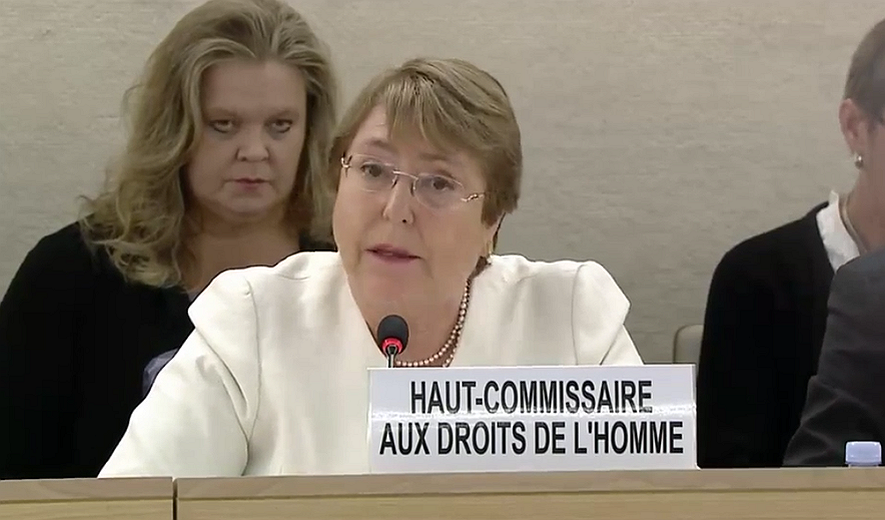Bachelet urges Iran to stop executing juvenile offenders

GENEVA (5 October 2018) – UN High Commissioner for Human Rights Michelle Bachelet on Friday condemned the execution in Iran this week of Zeinab Sekaanvand Lokran, a juvenile offender. Ms. Sekaanvand was convicted of murdering her husband in 2012, when she was 17 years old, but her claims that she was coerced into confessing to the killing, and that she had been a victim of domestic violence, were reportedly not adequately examined during her trial.
Despite a number of appeals from UN Special Rapporteurs and the UN Secretary-General since her conviction in October 2014, Ms. Sekaanvand was executed on 2 October 2018. Her family was given one day’s notice of her execution, for a final visit. Her detention and trial were also reportedly marred by procedural irregularities, including being beaten by police officers following her arrest, and having no access to a lawyer until her final trial session, where she recanted her confession.
Dozens of other convicted juvenile offenders reportedly remain on death row in Iran, which has already executed at least five juvenile offenders so far this year. Executions are often carried out at short notice, allowing little room for scrutiny and transparency.
“The sheer injustice in the case of Zeinab Sekaanvand Lokran is deeply distressing,” High Commissioner Bachelet said. “The serious question marks over her conviction appear not to have been adequately addressed before she was executed. The bottom line is that she was a juvenile at the time the offence was committed and international law clearly prohibits the execution of juvenile offenders.”
“As a State party to both the Convention on the Rights of the Child and the International Covenant on Civil and Political Rights*, Iran has an obligation to abide by their provisions and to end the use of the death penalty against juvenile offenders,” Bachelet said.
She stressed that the UN Human Rights Office opposes the use of the death penalty in all circumstances, as no judiciary in any part of the world is mistake-free.
The High Commissioner noted that this year Iran has commuted many death sentences for drug offences to lesser punishments, after an amendment to its mandatory drug laws was introduced in 2017. She encouraged the Iranian authorities to take further steps towards restricting the use of the death penalty, including by halting all juvenile executions, and commuting all death sentences.
***
* International Covenant on Civil and Political Rights Article 6.5: “Sentence of death shall not be imposed for crimes committed by persons below eighteen years of age and shall not be carried out on pregnant women.”
Convention on the Rights of the Child Article 37: “States Parties shall ensure that:
(a) No child shall be subjected to torture or other cruel, inhuman or degrading treatment or punishment. Neither capital punishment nor life imprisonment without possibility of release shall be imposed for offences committed by persons below eighteen years of age.”

